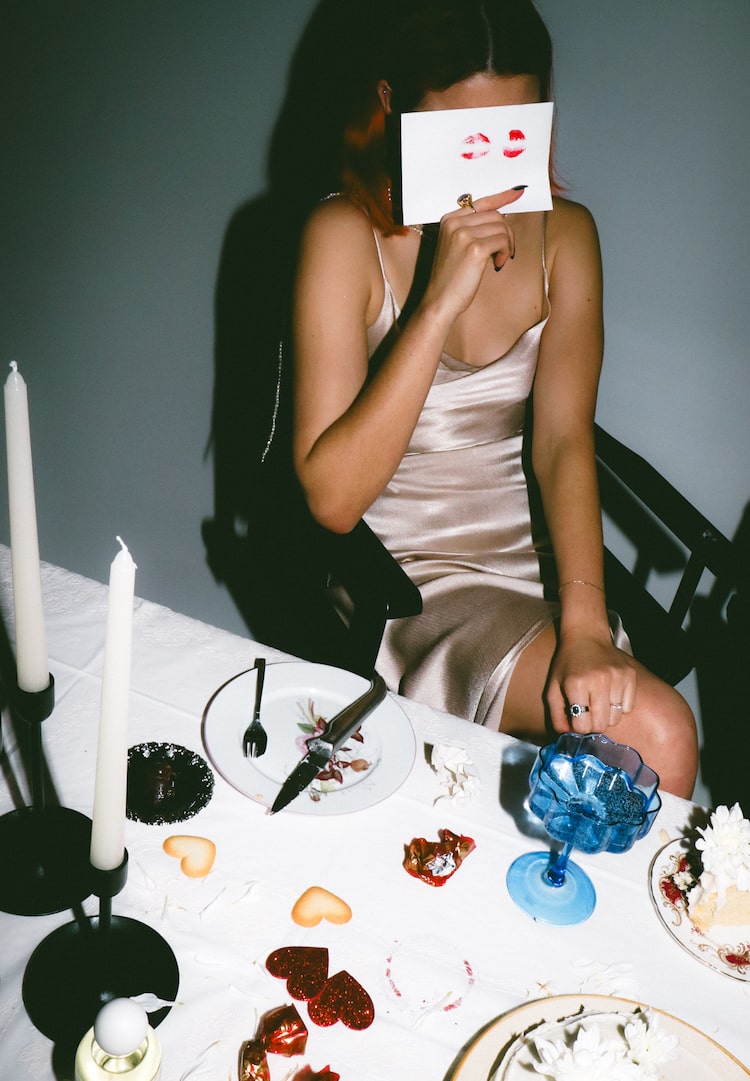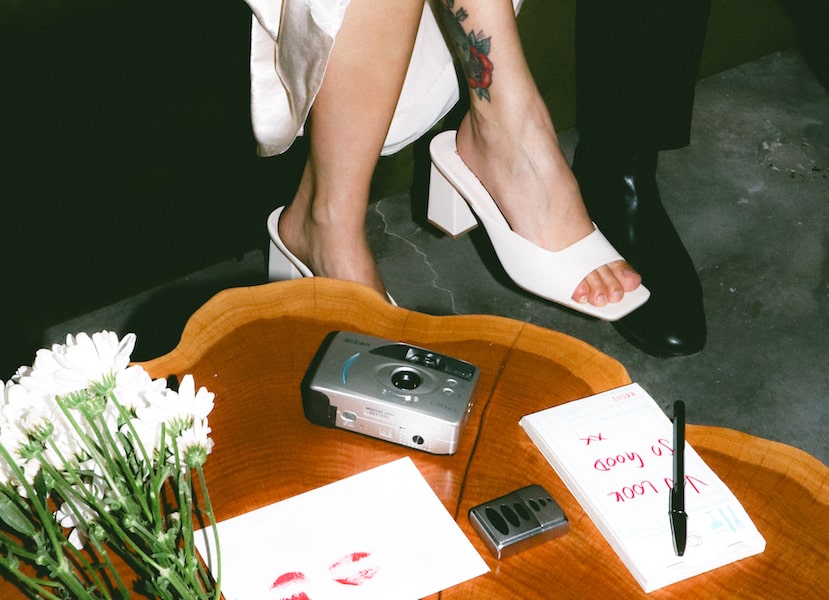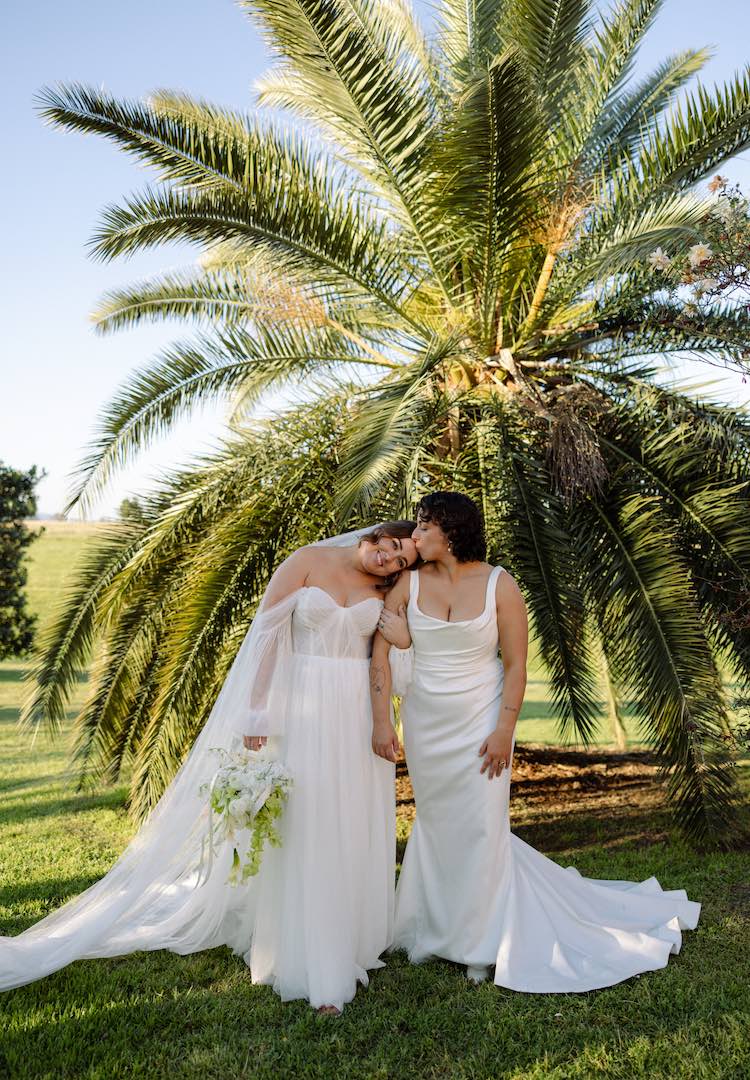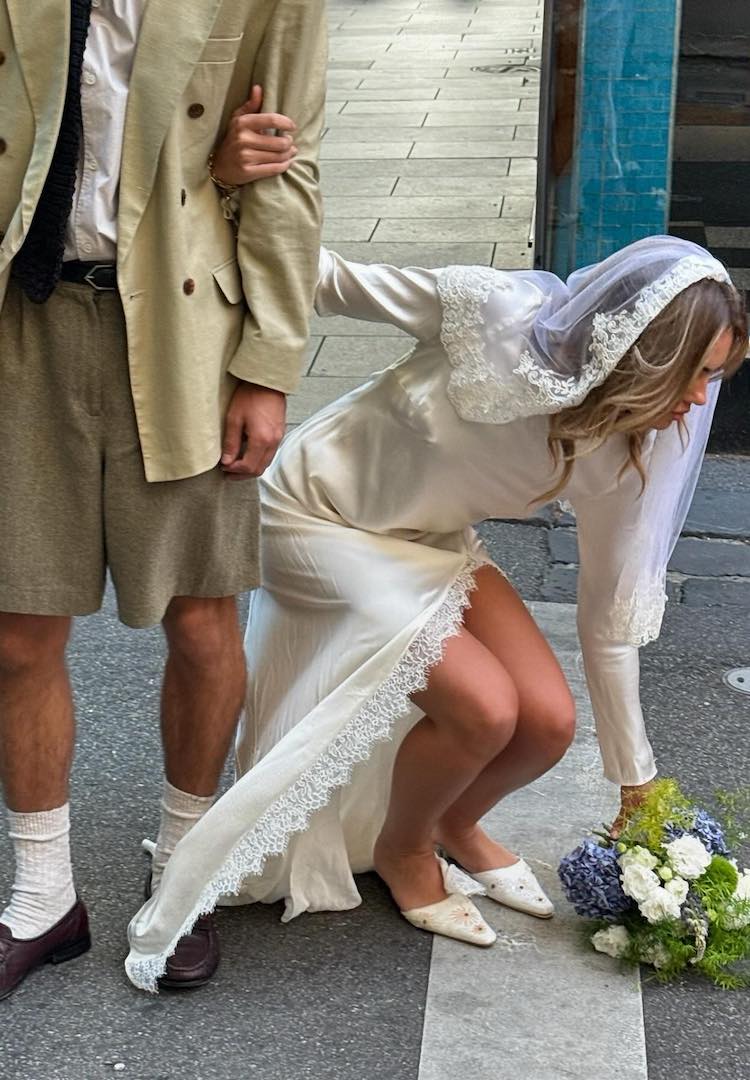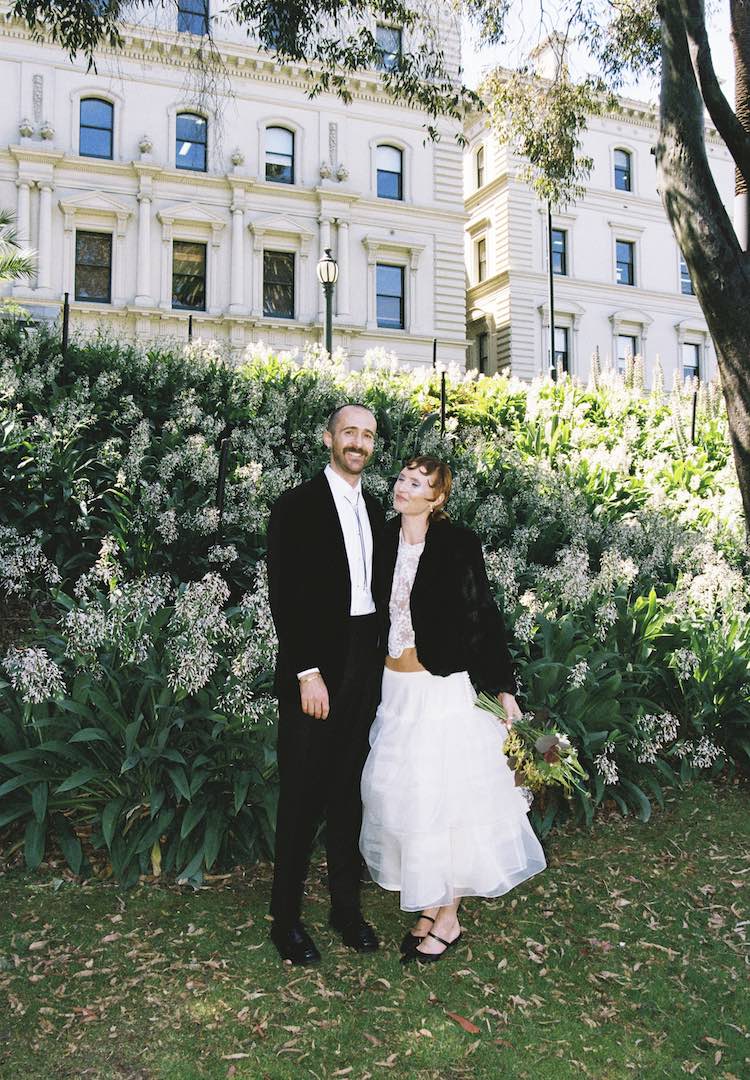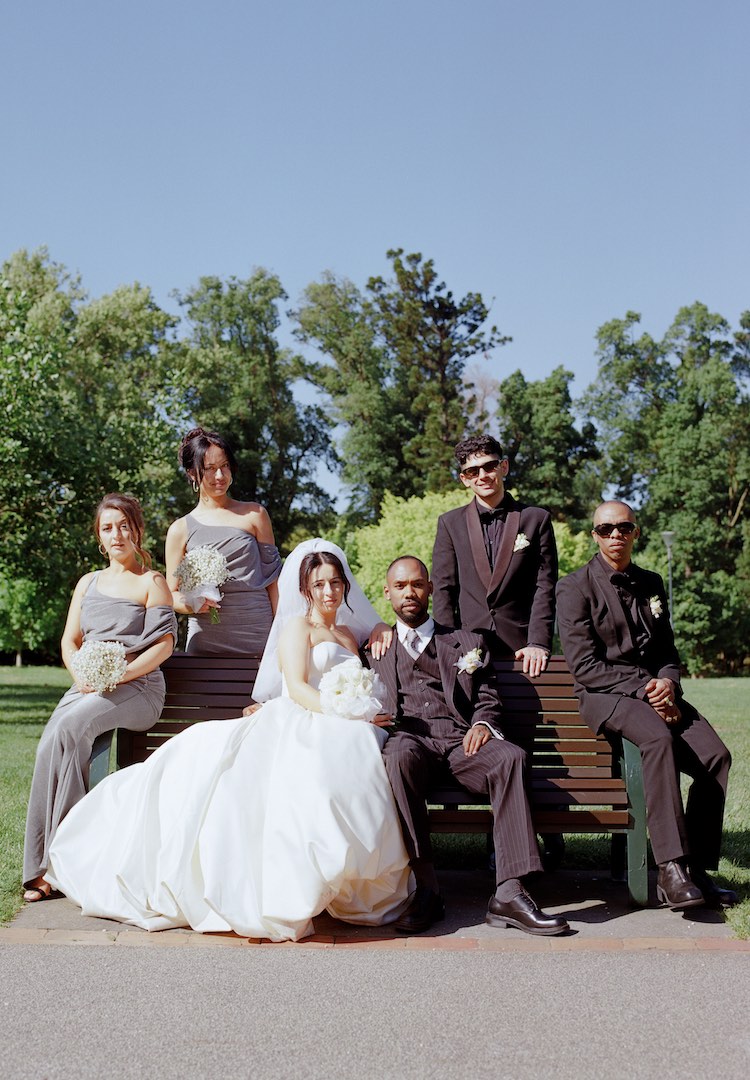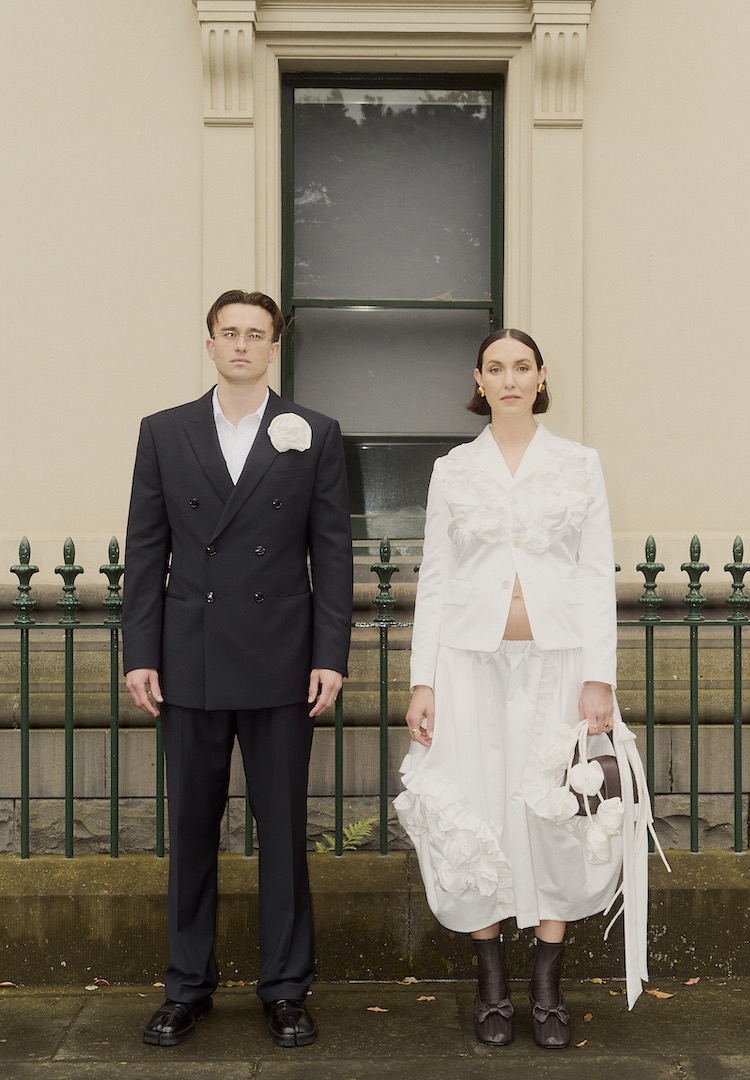A guide to writing your wedding vows, from someone who does it for a living
IMAGE VIA @28THDAYCREATIVE/INSTAGRAM
WORDS BY Genevieve Phelan
“The best vows articulate the grit of their love for one another, whether it’s about the person or how the person makes them better.”
I experience severe writer’s block from time to time. Usually, it’s when I’m working on something I care really deeply about, and I start criticising every word. In the realm of vow writing, this issue is amplified by the whole ‘getting married’ event.
When it comes to earnestly confessing your deepest feelings to the love of your life (in front of an audience of your favourite people in the world), I can imagine the pressure would be crippling. There are probably so many versions of what you could say and how you could say it. But I also think it would be a ridiculously fun brief and something to approach with unbridled, authentic emotion.
Looking for more thought-provoking reads? Try our Life section.
While I’m not tying the knot anytime soon, I attended the first wedding of my adulthood towards the end of last year. I appreciated the short and sweet nature of the speeches and loved hearing from the couple’s family and friends.
Occasionally, I fall into deep, spiralling holes of wedding-related TikTok content. It’s not uncommon for me to be marinating in fake tan on a Thursday night while watching strangers overseas confess their love to each other in montage flashback vignettes.
It got me thinking. How do people even begin to scribe their innermost feelings on something as significant as a wedding day? Oddly, there I couldn’t find any rulebooks or dedicated copywriters for vow-writing in Australia until just recently.
I Do Club has launched in Melbourne to fill the void of pathos-oozing, non-cringeworthy, poignant messages from the heart tailored to each individual love story. Created by 29-year-old copywriter and bride-to-be Asheda Weekes, I Do Club is following suit in the rise of niche wedding services.
For anyone in the process of writing their own bespoke vows (or supporting a struggling bride/groom), Asheda is giving us a glimpse into her editorial process. I’ve asked her to offer up some expert tips on waxing lyrical in your wedding vows without worrying you’ve missed the mark.
If you’re a maid of honour going above and beyond, or a best man who knows their mate is notorious for leaving things to the last minute, send them this interview immediately.
Hypothetically, if I were writing my vows, where would I even start?
Start early and communicate with your partner. If wedding planning has taught [me anything] it’s that you need lead times, and this is no different when writing vows! Start the process one to two months out, that way you’ll feel grounded in the words you’ll say.
View this post on Instagram
With your partner, you can talk about themes, the tone and how long they’ll be. With that as a guide, you can start mapping out things you want to say (bullet points are your friend) and then start shaping the vows.
What are some common roadblocks people encounter when vow writing?
It’s no surprise: imposter syndrome and writer’s block. I asked my followers and the common things that came up were people struggling with getting started, how to articulate their feelings without it coming off as generic, cheesy or cringe [and being] unsure how to structure it and what to include… They doubt everything that lands on the page.
What about some frequent mistakes made in the scribing process?
Skipping the planning and drafting bit beforehand. Spend a good portion of time jotting down points you want to cover [and] organise your thoughts… [this] can help hone in on the most important things you want to say and shape the overall story you’re telling in your vows. It also helps prevent the mistake of fitting too much into the recommended time.
[Also,] using unnecessary words. My house style is poetic and romantic, but that doesn’t apply to everyone and isn’t a must-do when writing vows. If you’re not a person that will use words like ‘incandescent’ and ‘enigmatic’, you don’t need to. Your vows need to sound like they’re from you! Romance can be expressed without big and flowery words.
Should you ever read your draft vows to someone else?
Yes! Absolutely. Ring in the bridal party or your besties, because that’s what they’re there for. It gives you an opportunity to temperature-check the words you’re including, how they flow and how long they go for. It also gives you a chance to work on the speech bit of vows – writing them is only half of it, so the more practice you have speaking, the better.
How long should vows be?
View this post on Instagram
The sweet spot would be two minutes, which translates to 250 to 300 words. If you’re incorporating a poem or traditional/religious elements it may be a bit longer, which is fine too. I’d suggest talking to your partner about this though – it can feel jarring if one person has short vows while the other has longer ones.
What have your favourite vows included, and what are some common standout themes from the best vows?
I’m a sucker for a short and sweet poem, quote or lyric. If it holds significance for the couple, it sheds a special light on their relationship by sharing intimate words with their loved ones. Alternatively, it’s a great way to articulate emotion… if they’re struggling to speak directly or to be creative.
The best vows articulate the grit of their love for one another, whether it’s about the person or how the person makes them better. And in that vulnerability, it’s about making realistic promises on how that grit moves them forward to flourish (as a couple and as individuals).
How funny and/or serious should vows be?
View this post on Instagram
This depends on three things – who you are as a person, the relationship dynamic and in some cases, the overall vibe of your wedding. If you get fixated on how funny or serious you want to be (or think you should be) you can get lost in prioritising that instead of the true purpose of the vows… It shouldn’t be smoke and mirrors, [or] a kind of performance that doesn’t reflect who you are… As long as there is vulnerability and sincerity, I think any mix is fine!
In a hetero relationship, it’s a common stereotype that the groom will struggle more than the bride with their vows. Do you find this to be true?
This stereotype stems from the idea of expressing emotion and vulnerability (or lack thereof). If we focus on the grooms, it is true only because the stereotypes are projected on them to the point where they subconsciously believe it’ll be hard to write.
However, I don’t think it’s true that they struggle more, they only struggle differently. Because of this stereotype, it’s also projected on brides that it should be easy to write and that causes pressure too.
It’s why I want to flip the attitude toward vow writing on its head… The intersection of these stereotypes and the goal of shaping something truly meaningful creates an air of panic. It should be an air of excitement instead.
For more vow-writing tips, head here.


